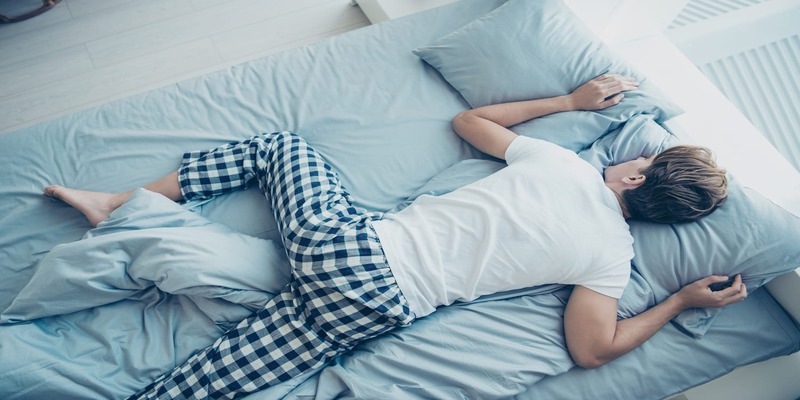Spending hours tossing and turning in bed while attempting to sleep stressful, uncomfortable, and a waste of time. Nighttime restlessness can be brought on by several circumstances, including anxiety, stress, and overstimulation. The topics of today's article are why you toss and turn at night and what you can do about it.
Why Do You Toss And Turn During The Night?

You may be unable to get comfortable at night for various reasons, including anxiety, overstimulation, a medical issue, or something else entirely. Let's check out a few of the reasons for this.
Stressed out
It might be challenging to get to sleep and remain asleep if you suffer from an anxiety condition and experience more significant anxiety at night. One study from 2017 indicated that somatic anxiety severely degrades sleep quality. If your mind is racing with worry, you could toss and turn more than usual.
Experiencing Stress
Stress's mental and physical symptoms can make it difficult to relax and drift off to sleep. For instance, if you go to bed with stiff muscles from tension every night, your body may have a more challenging time unwinding. Another study from 2017 found that the quality of medical students' sleep was substantially correlated with their stress levels.
Excessive Stimulation
According to the National Sleep Foundation, the blue light emitted by phones, TVs, and other electronic gadgets has been shown to delay the sleep hormone melatonin. Furthermore, sensory stimulation inside and outside your bedroom might cause you to toss and turn more frequently.
Insufficient Rest
Sleep quality can be negatively impacted by going to bed when you aren't exhausted, going to bed too late, or going to bed too early.
It might be challenging to unwind and drift off to sleep if you aren't tired enough (or too weary) by the time you get into bed. The same thing might take place when your sleep routine is thrown off.
Oversleeping Before Bed
The health benefits of brief naps taken during the day have been well-documented. However, excessive daytime napping might disrupt nighttime sleep patterns.
Some people find that if they sleep in until late in the afternoon, they aren't quite tired enough by bedtime. This may make you toss and turn in bed at night.
Disordered Eating Habits
Having a good night's rest helps to eat healthily. Dietary nutrients are crucial in the generation of melatonin and other vital neurotransmitters that govern sleep. The inability to fall asleep or maintain restful sleep due to a deficiency in any of these nutrients is well-documented.
Preexisting Medical Conditions

Restless legs syndrome, sleep apnea, and insomnia are some of the most prevalent underlying medical disorders that can cause poor sleep quality.
Leg Restlessness
It would help if you constantly moved your legs when you have restless legs syndrome. As the name implies, RLS is a feeling that typically occurs while a person is at rest, such as when resting in bed. Sleeplessness is common among those who desire to walk about all the time.
Snoring
Another medical issue that can lead to restless sleep is sleep apnea. Sleep apnea is a sleep disorder in which breathing stops and repeatedly starts at night. This might make it difficult to get comfortable at night, leading to a tossing, turning, and awakening cycle.
Insomnia
Insomnia is a sleep disorder in which a person has difficulty falling asleep or remaining asleep. Many medical and psychological issues might contribute to a lack of sleep. If you have insomnia, you can toss and turn all night long. Conditions that cause chronic pain, such as arthritis or fibromyalgia, can make it hard to relax at night.
Avoid Restless Sleep At Night
If you have trouble falling or staying asleep, establishing a regular schedule for getting ready for bed might help.
Create A Relaxing Bedroom
The first rule of proper sleep hygiene is to make your bedroom a place where you want to spend time sleeping. Investing in a high-quality bed and linens will help you relax each night and get some much-needed shut-eye. Are you interested in advice? Check out our shop, stocked with bed and pillow suggestions vetted by our editors and experts.
Learn To Relax
Physical and mental signs of stress and anxiety can be alleviated with relaxation techniques. Help your body wind down and get ready for sleep with deep breathing, meditation, guided imagery, or grounding exercises.
• Turn Off The Devices
To let your body and mind wind down for the night, it's best to avoid stimulating activities like utilizing electronic devices in the hour leading up to bedtime. That calls for laying down the phone in favor of something less distracting, like a book.



